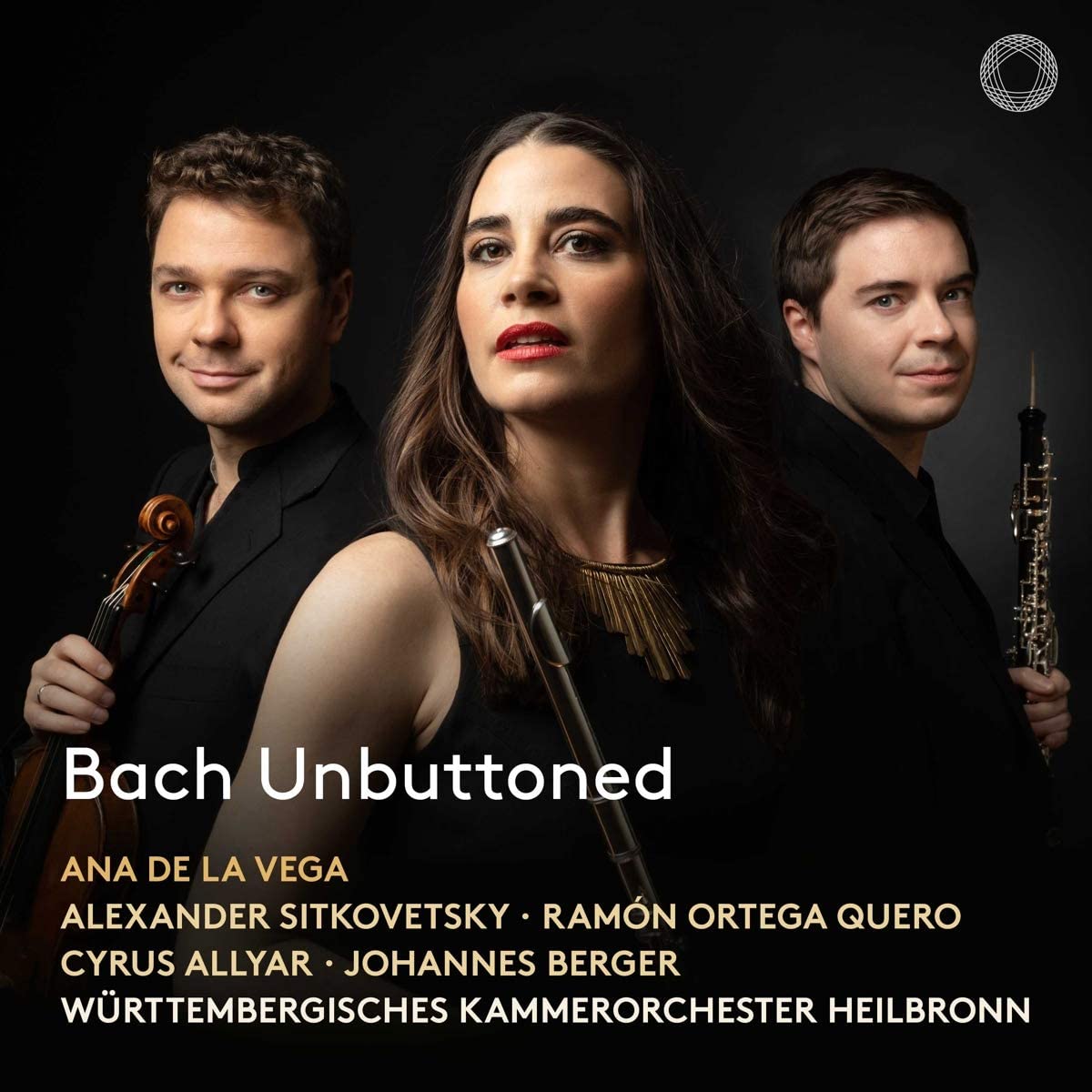Ana De La Vega flute, Ramón Ortega Quero oboe, Alexander Sitkovetsky violin, Cyrus Allyar trumpet, Johannes Berger harpsichord, Württembergisches Kammerorchester Heilbronn
62:26
Pentatone PTC 5186 893
Click HERE to buy this on amazon.co.uk
[These sponsored links help the site remain alive and FREE!]
This is a CD of Brandenburgs 5, 4 and 2 with the double concerto in D minor played enthusiastically by Ana de la Vega and Ramón Ortega on modern flute and oboe. ‘Regards to instrumentation,’ writes de la Vega in the liner notes, ’in those days it was usual to play a musical line on the instruments available, depending who was on your castle staff and up to the job. Hence we have taken similar licence, playing Brandenburg no. 4 with flute and oboe (instead of two flutes) and the famous double concerto with two different melodic instruments, that happened to be ‘at hand’. (No mention of the fact that in 4 it was two recorders, rather than traversi anyway.)
As an exercise in enjoying playing Bach, this is a polished and wizzy spree. The players are classy, and once you have got used to the high pitch, it sounds well. BUT – and there needs to be a warning ‘but’ – there are regrettable consequences. First, the balance between the instruments goes up the creek – the accompanying orchestra is many players per part, so it becomes the dominant sound with the bass particularly thumpy – and the harpsichord, even in the first movement of Brandenburg 5 is so reticent – why? Second, the ‘solo’ instruments need to have their volume ‘enhanced’ to compete and they lack the natural fluency of the period instruments and their unobtrusive blendability, which is cruelly exposed in Brandenburg 2.
Perhaps surprisingly, I found the slow movement of the D minor double concerto, with its almost trio sonata quality, the most plausible – it reminded me of playing the same work with just that same scoring in the 1950s before we had period instruments. Most Bach can be played on whatever is to hand with a degree of enjoyment. Viva la musica!
David Stancliffe
